detail profile carlos saura

Carlos Saura
카를로스 사우라
atau dikenal sebagai
Riwayat Hidup
Carlos Saura Atarés (4 January 1932 – 10 February 2023) was a Spanish film director, photographer and writer.
With Luis Buñuel and Pedro Almodóvar, he is considered to be among Spain's great filmmakers.
He had a long and prolific career that spanned over half a century, and his films won many international awards.
Saura began his career in 1955 making documentary shorts.
He gained international prominence when his first feature-length film premiered at Cannes Film Festival in 1960.
Although he started filming as a neorealist, Saura switched to films encoded with metaphors and symbolism in order to get around the Spanish censors.
In 1966, he was thrust into the international spotlight when his film The Hunt won the Silver Bear at the Berlin International Film Festival.
In the following years, he forged an international reputation for his cinematic treatment of emotional and spiritual responses to repressive political conditions.
By the 1970s, Saura was the best known filmmaker working in Spain.
His films employed complex narrative devices and were frequently controversial.
He won Special Jury Awards for Cousin Angelica (1973) and Cría Cuervos (1975) in Cannes, and he received an Academy Award for Best Foreign Language Film nomination in 1979 for Mama Turns 100.
In the 1980s, Saura was in the spotlight for his Flamenco trilogy – Blood Wedding, Carmen and El amor brujo, in which he combined dramatic content and flamenco dance forms.
His work continued to be featured in worldwide competitions and earned numerous awards.
He received two nominations for Academy Awards for Best Foreign Language Film for Carmen (1983) and Tango (1998).
His films are sophisticated expression of time and space fusing reality with fantasy, past with present, and memory with hallucination.
In the last two decades of the 20th century, Saura concentrated on works uniting music, dance and images.
Description above from the Wikipedia article Carlos Saura, licensed under CC-BY-SA, full list of contributors on Wikipedia.
Info Pribadi
Peran Yang Di Mainkan Carlos Saura
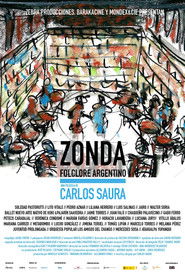 Argentina continues Sauras lyrical exploration of...
Argentina continues Sauras lyrical exploration of...Argentina 2015
Argentina continues Saura’s lyrical exploration of the essence, talent and patrimony of popular dance and song in both fiction and documentary
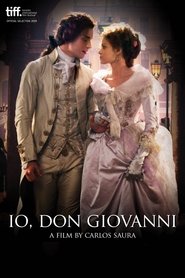 A drama based on the life...
A drama based on the life...I, Don Giovanni 2009
A drama based on the life of 18th century Italian lyricist Lorenzo da Ponte, who collaborated with Mozart on his "Don Giovanni" opera.
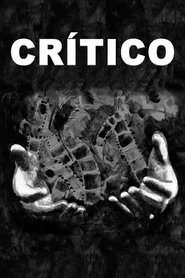 Seventy critics and filmmakers discuss cinema...
Seventy critics and filmmakers discuss cinema...Critic 2008
Seventy critics and filmmakers discuss cinema around the conflict between the artist and the observer, the creator and the critic. Between 1998 and 2007, Kléber Mendonça Filho recorded testimonies about this relationship in Brazil, the United States and Europe, based on his experience as a critic.
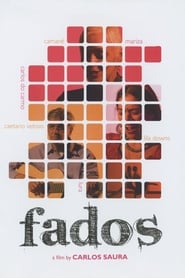 A series of musical performances showcasing...
A series of musical performances showcasing...Fados 2007
A series of musical performances showcasing the diverse facets of fado, a musical genre from Lisbon.
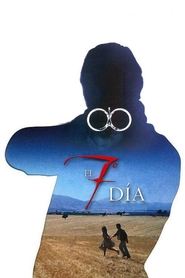 Isabel Jimenez is a teenager witnessing...
Isabel Jimenez is a teenager witnessing...The 7th Day 2004
Isabel Jimenez is a teenager witnessing a horrible feud between her own family and the Fuentes family, a feud involving broken hearts, property disputes and a mysterious fire that destroyed the Fuentes house. Isabel's uncle is murdered by Jeronimo Fuentes, who later tries to stab her father. After Jeronimo dies in jail, Isabel must look outside of her family for the truth, learning from the village idiot that her father may have set fire to the Fuentes home.
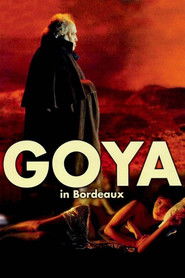 Francisco Goya 17461828 deaf and ill lives...
Francisco Goya 17461828 deaf and ill lives...Goya in Bordeaux 1999
Francisco Goya (1746-1828), deaf and ill, lives the last years of his life in voluntary exile in Bordeaux, a Liberal protesting the oppressive rule of Ferdinand VII. He's living with his much younger wife Leocadia and their daughter Rosario. He continues to paint at night, and in flashbacks stirred by conversations with his daughter, by awful headaches, and by the befuddlement of age, he relives key times in his life.
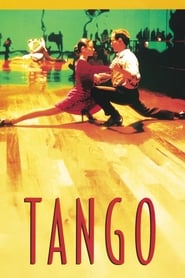 A dangerous love affair inspires a...
A dangerous love affair inspires a...Tango 1998
A dangerous love affair inspires a director to create the most spectacular and boldly seductive dance film ever made.
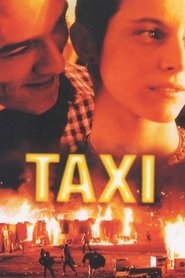 A young girl after failing an...
A young girl after failing an...Taxi 1996
A young girl, after failing an exam, is forced by her father, a taxi-driver, to learn his profession. Soon she discovers that her father is not only a driver but also a member of a racist group eliminating immigrants, homosexual, transvestite, etc. people. She also falls in love with a boy, also a taxi-driver and a "socio" of the group.
 Marco Vallez Antonio Banderas is possessed...
Marco Vallez Antonio Banderas is possessed...Outrage 1993
Marco Vallez (Antonio Banderas) is possessed by the beauty of a circus sharp shooter, and from the second they meet he is willing to give up everything to be with her. But one horrifying night sends them both down a road of revenge leaving behind a trail of bodies to the ultimate showdown with justice.
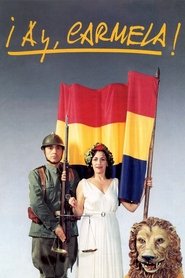 Paulino and Carmela are husband and...
Paulino and Carmela are husband and...Ay, Carmela! 1990
Paulino and Carmela are husband and wife, troubadours touring the countryside during the Spanish Civil War. They are Republicans, and with their mute assistant, Gustavete, they journey into rebel territory by mistake. They are arrested, fear a firing squad, and receive a reprieve from an Italian Fascist commander who loves the theatre. He arranges a performance for his troops, bargaining with Paulino to stage a burlesque of the republic in exchange for the actors' freedom. Will the fiery and patriotic Carmela consent?
 The story of an expedition down...
The story of an expedition down...El Dorado 1988
The story of an expedition down the Orinoco and Amazon rivers in 1560 by Spanish soldiers searching for the fabled city of gold, El Dorado.
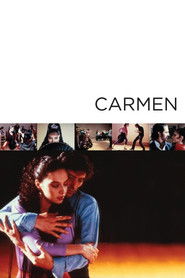 While rehearsing a flamenco ballet adaptation...
While rehearsing a flamenco ballet adaptation...Carmen 1983
While rehearsing a flamenco ballet adaptation of Bizet's opera “Carmen”, Antonio, the choreographer, falls in love with the main dancer, Carmen, a fiercely independent woman. Antonio is slowly consumed by jealousy and possessiveness towards Carmen, just like Don José in the original opera, blurring the lines between fiction and reality.
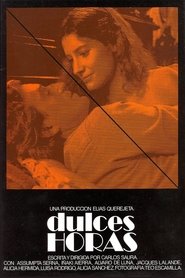 Juan Sahagn since childhood feels passion...
Juan Sahagn since childhood feels passion...Sweet Hours 1982
Juan Sahagún, since childhood, feels passion for his mother. One day in the street he sees a woman identical to her. He follows her and finds out that she works as an actress in a theater company, so Juan decides to hire the whole company to represent the people who have influenced him in his past. They recreate the same situations of yesteryear and Juan acts as the child he was, to relive the memories already forgotten.
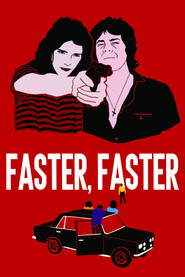 Angela is a young waitress who...
Angela is a young waitress who...Faster, Faster 1981
Angela is a young waitress who turns her back on society when she meets and falls in love with Pablo, a reckless criminal delinquent. Along with Pablo’s gang of car thieves, the pair embark on a drug and disco-fueled robbery spree as they hurtle toward oblivion.
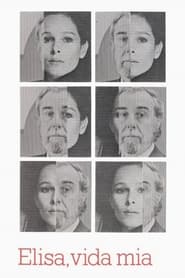 Elisa has not seen her father...
Elisa has not seen her father...Elisa, My Life 1977
Elisa has not seen her father Luis for nine years, but she receives a telegram from her sister Isabel in a moment of crisis in her marriage with Antonio telling that her father is ill. Elisa decides to travel to the countryside of Madrid with Isabel and her brother-in-law Julián and their two children to visit Luis for his birthday. Elisa decides to stay with her father when her sister returns to Madrid with her family and she gets closer to Luis, understanding why he left her mother years ago. Later she tells him that Antonio cheated on her with her best friend Sophie and their relationship has ended. When Antonio unexpectedly arrives in the house, Elisa makes a decision about her life.
 When the single middleaged Luis travels...
When the single middleaged Luis travels...Cousin Angelica 1974
When the single middle-aged Luis travels from Barcelona to bury the remains of his mother in the vault of his family in Segovia, he is lodged by his aunt Pilar in her old house where he spent his summer of 1936 with her. He meets his cousin Angelica, who was his first love, living on the first floor with her husband and daughter, and he recalls his childhood in times of the Spanish Civil War entwined with the present.
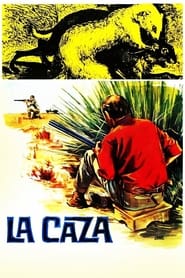 Three veterans of the Spanish Civil...
Three veterans of the Spanish Civil...The Hunt 1966
Three veterans of the Spanish Civil War go rabbit hunting. While doing so, old wounds open up.
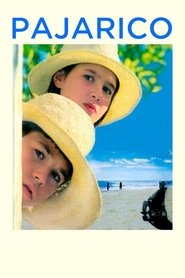 Manu travels to Murcia to spend...
Manu travels to Murcia to spend...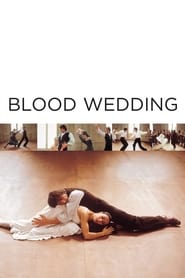 A dance troupe prepares for and...
A dance troupe prepares for and... Ana an eightyearold girl living in...
Ana an eightyearold girl living in...